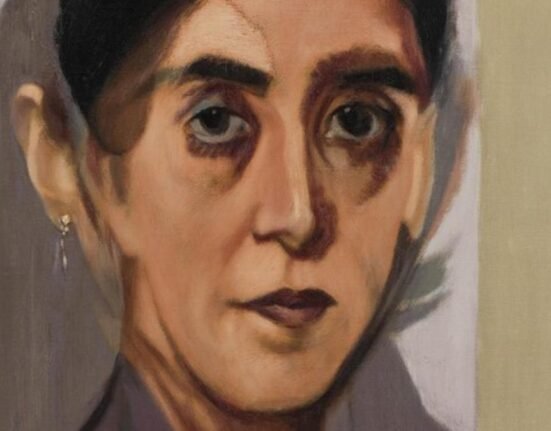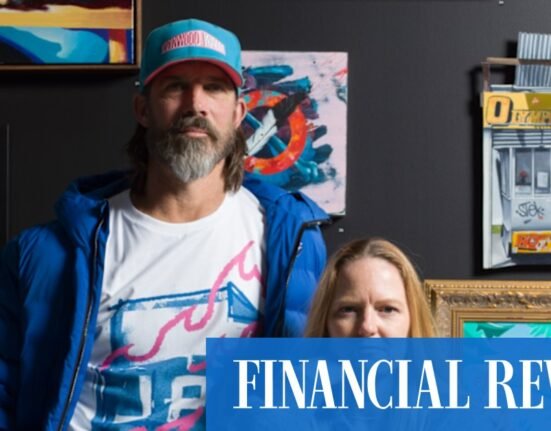Why do people collect art? And what factors influence how they purchase it? These questions form the basis of Art Collector Insights 2023, Artsy’s research-driven report on the state of art collecting today.
Amid this period of pronounced uncertainty for the art market and the economy at large, we sent out our annual survey to Artsy users to learn about the current behaviors, preferences, and concerns of collectors in 2023. Here, we share our findings, which are informed by the responses of more than 1,200 respondents.
Overall, what we found is a nuanced yet positive picture. The vast majority of collectors we surveyed bought the same amount of art or more than last year. And the use of online tools for buying and discovering art remained consistent in a post-pandemic world.
We also encountered notable generational differences between younger and older collectors, particularly in terms of the types of art they’re drawn to and how they purchase it. Millennial and Gen Z collectors, we found, are unsurprisingly more digitally engaged than their older counterparts. But they’re also motivated by different factors and collect in markedly different ways, too.
Broadly, we found that the motivations driving collectors today vary widely, though strong trends emerge when looking into the most popular genres of art; online buying preferences; and the key information collectors need when deciding to buy a work.
Our survey reveals an intriguing glimpse into what it means to collect art today. Below, we share some of the findings from the report. To read the full findings, click here to download the report as a PDF.
1. Most art buyers are looking to build a collection—but investing is on the rise
Based on Artsy survey responses.
When asked why they buy art, most respondents said they are looking to build a collection (64%), followed by the desire to decorate homes or other spaces (62%), to support artists (52%), and to find inspiration (50%).
Though a smaller portion of respondents, 38%, said they purchase art as an investment, that figure represents a six-point rise from our Art Collector Insights 2022 report. This rise may be attributable to art’s prominence as a stable alternative asset class in times of economic volatility.
2. Abstract art is the most important genre for today’s collectors
Based on Artsy survey responses.
Collectors are largely purchasing across a variety of mediums. Unsurprisingly, the vast majority (94%) said they purchase paintings. This was followed by prints and multiples (56%), sculptures and ceramics (57%), and photography (43%).
When it comes to art genres, collectors gravitate towards several that are closely associated with painting. Asked what three genres of contemporary art are most important to them, collectors selected abstract art at a rate of 50%, followed by expressive figurative works (34%), realist figurative works (22%), and contemporary surrealism (17%).
3. Despite economic headwinds, art collecting remains stable
Based on Artsy survey responses.
In our survey of collectors in 2022, the economic atmosphere was marked by inflation fears, with the highest proportion of respondents (37%) expressing concern that inflation would impact their collecting budgets in the following year. Despite this, we found that collector spending has been resilient this year. Some 75% of respondents to our 2023 survey said they purchased the same amount of art or more by volume over the past 12 months than they did in the previous 12 months.
4. The physical art world might be back, but online collecting is here to stay
Based on Artsy survey responses.
While the art world returned to pre-pandemic norms last year, digital tools remain critical to buying and discovering art.
Online art platforms are not a supplementary tool, but a core part of the art collecting journey for the vast majority of our respondents. Some 80% of respondents have purchased art online in the last 12 months, marking a four-point rise from last year’s survey.
5. Price visibility and security are key for online art transactions
Based on Artsy survey responses.
When it comes to buying art online, our respondents prioritize safety and transparency.
A majority (58%) of respondents identified a lack of transparent pricing as the main factor that prevents them from purchasing art online. In fact, when asked to quantify how important publicly listed prices are when purchasing an artwork online, respondents gave an average score of 84 out of 100.
6. Younger collectors are doing things differently
Based on Artsy survey responses.
Our survey also found several divergences in how younger collectors are purchasing art.
Some 82% of collectors over the age of 37 said they’d purchased art from an art gallery, while a smaller portion of younger collectors between the ages of 18 and 36, 70%, said the same. Just 10% of younger collectors said they’d purchased art from an in-person auction compared to 29% of older collectors, and 38% of these younger collectors said they’d purchased from an art fair compared with 51% of their older counterparts.
These groups align, however, on buying work directly from an artist, which was selected by 70% respectively.
Methodology
Artsy’s Art Collector Insights 2023 report was developed through an online survey that ran from July 2023 through August 2023, with responses from more than 1,200 Artsy users from over 60 countries.
The majority of participants (53%) are based in the U.S., followed by the U.K. (20%).
Arun Kakar
Arun Kakar is Artsy’s Art Market Editor.
Thumbnail: Sam Gilliam, detail of “Untitled,” 2022. Courtesy of David Kordansky Gallery; Larry Bell, detail of “Barcelona Suite 2,” 1988. Courtesy of Hauser & Wirth.







